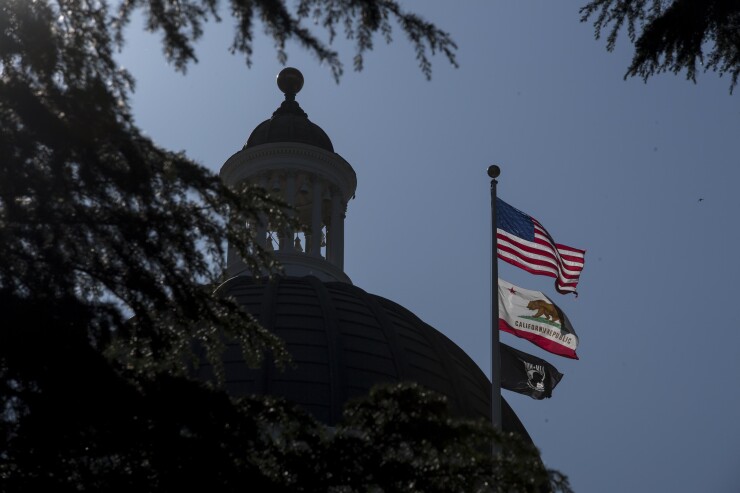An interest rate on a consumer loan in California could be deemed illegally high even if it is not subject to usury laws, the state's Supreme Court ruled Monday.
The unanimous decision against the nonbank lender CashCall could upend the consumer credit market in the state, which only has interest rate limits for loans up to $2,500. State law includes a provision that high interest rates on larger loans could be still be illegal if they are considered "unconscionable."
The opinion written by Associate Justice Mariano-Florentino Cuellar suggested that the 98% rate on a CashCall loan of $2,600, made to the lead plaintiff in the class action case, may meet that standard. Such a rate may be considered so high as to "shock the conscience," he wrote.

"We recognize how daunting it can be to pinpoint the precise threshold separating a merely burdensome interest rate from an unconscionable one," Cuellar wrote "But that is no reason to ignore the clear statutory embrace here of a familiar principle — that courts have a responsibility to guard against consumer loan provisions with unduly oppressive terms."
The signature product for CashCall, a nonbank lender in Orange, Calif., is an unsecured $2,600 loan with rates of between 96% and 135%. The plaintiff, Eduardo De La Torre, of Redwood City, alleged that the company should have known he could not pay back the more than $9,000 he owed on the loan.
The lawsuit is still pending at the federal level, but the U.S. Court of Appeals for the Ninth Circuit had asked the state's highest court to weigh in on the "unconscionable" standard.
De La Torre has argued that CashCall's lending practices were unlawful because the interest rate the company charged was "unconscionable," in violation of California's unfair competition law.
The California ruling will have little impact on banks but could have important implications nationwide for nonbanks and installment lenders by opening the floodgates to more litigation. Regardless of the outcome of the court case, nonbank lenders might now take a fresh look at what interest rates they are charging and how they enter into contracts with borrowers in California.
Daniel Baren, CashCall's general counsel, did not immediately return calls seeking comment.
A central issue in the case was whether courts — and not the legislature — can decide if the interest rate on a loan is "unconscionable." CashCall claimed that the courts had no role in making that determination.
Cuellar wrote that CashCall had mounted "a blunderbuss attack" on the courts' authority, attempting to cast doubt on whether California's legislature "intended for courts to make determinations of unconscionability.”
Yet the decision was surprising to many in the state who thought that lenders' ability to charge high interest rates on large loans was unquestioned.
Indeed, many consumer finance attorneys thought the case was a slam dunk for CashCall because California had removed interest rate caps on loans above $2,500 in 1985.
Graciela Aponte-Diaz, the director of California policy at the Center for Responsible Lending, said that roughly 60% of loans above $2,500 originated in California in 2017 had annual percentage rates higher than 100%.
"Even the California Supreme Court now agrees that charging high interest on these loans can be illegal," she said, adding that the court’s decision should force the state legislature to restore interest rate caps.
Still, it is unclear if the plaintiffs, who are seeking restitution and injunctive relief, will ultimately prevail.
The court said there has to be a determination of both "substantive and procedural unconscionability," which means the courts have to examine the individual terms of the loans, how the contracts were made, and whether there were proper disclosures, among other issues.
The case now will go back to the Ninth Circuit. The appeals court likely will send the case back to the district court, lawyers said.





